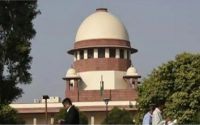$100 Website Offer
Get your personal website + domain for just $100.
Limited Time Offer!
Claim Your Website Now2 acquitted of murder charge, 32 years after being convicted
Source:-indialegallive
New Delhi: The Orissa High Court has acquitted two people of murder charge, 32 years after they had appealed against the trial court verdict.
The single bench of Justice S. K. Sahoo passed this judgment while disposing an appeal filed by Nityananda Behera and Madhaba Behera, who were charged with murder during a clash over sharing of a jamun tree at Dighi, under Kamakhyanagar police station of Dhenkanal district, on February 18, 1986. Nityananda and Madhaba were convicted by the trial court on July 21, 1988.
Appellant No. 1 Nityananda Behera was charged under section 302 of the Indian Penal Code on the accusation of committing the murder of Raghaba Behera on February 18, 1986 at about 2 pm at village Dighi under Kamakhyanagar police station in the district of Dhenkanal.
The court of Sessions Judge, Dhenkanal, sentenced Nityananda to three years’ rigorous imprisonment under Section 304 (II) of IPC for assaulting a person having knowledge that his act had the likelihood of causing death.
Appellant No. 2, Madhaba Behera, was charged under section 324 of the Indian Penal Code for voluntarily causing hurt to Rohita Behera at the same time, place, and during the course of the same occurrence.
Madhaba was sentenced to six months’ rigorous imprisonment under Section 324 of IPC for voluntarily causing hurt by a weapon likely to cause death.
Both Nityananda and Madhaba filed a criminal appeal on August 5, 1988. Admitting it on August 26, 1988 the high court had on the same day directed their release on bail.
The court held that the prosecution had failed to prove that any decision was taken in the village meeting relating to the cutting of the jamun tree and its distribution.
The court observed while finding the trial court verdict not sustainable in the eye of law and setting it aside: “In view of the glaring inconsistencies in the evidence of the prosecution witnesses and when the case as was projected by the appellants appears to be more probable, I am of the humble view that it is a fit case where benefit of doubt should be extended in favour of the appellants.



